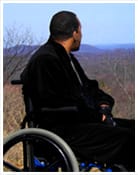Getting old comes with all kinds of injuries and medical conditions that aren’t usually an issue for healthier people earlier in life. One particular kind of injury has become culturally associated with nursing home living. Bedsores, also known as pressure ulcers, can easily become a problem for those with limited mobility in nursing homes.
However, contrary to the popular consensus about these painful sores, they are not an inevitable consequence of spending most of your day in bed or in a chair. Instead, in many cases, they are indicative of neglect and inadequate care from the people paid to provide for the residents in the nursing home.
Proper intervention can stop bedsores from forming
If you have ever sat in a car or at a desk for long enough to feel painful pressure around your tailbone or under your hips, then you understand the basic way that pressure ulcers form. The constant downward force of the body’s weight due to gravity can cause inflammation and damage to the tissue nearby.
The longer someone stays in one position without moving, the greater the risk of pressure ulcers developing. In their earliest stages, pressure ulcers just look like inflamed areas of skin. As they worsen, they can become abscesses and possibly impact not only the skin but the muscle tissue underneath.
Rotating the position that a patient maintains in bed, moving them from one seat to another and encouraging short bouts of physical activity are all ways for nursing home staff to prevent pressure ulcers. They can also use cushioning and blankets to reduce ongoing pressure in the high-risk areas, such as the back of the head, the back of the heels, under the hips and buttocks, and the back of the shoulders.
What should you do if your loved one has a bedsore?
If you come for a visit and notice a bedsore on your loved one, you need to take action immediately. The first step is to document the injury by photographing it or making a written note about what you found and when. You should then alert staff members to your concern so that they can take action to start alleviating the pressure on that part of your loved one’s body.
If the pressure ulcer continues to worsen, you may need to take additional action, especially if it progresses to a point where it threatens your loved one’s health. Demanding a reasonable amount of care to protect your loved one from preventable injuries should prompt quick action, and if it doesn’t, you may need to pursue a legal solution to the issue.

